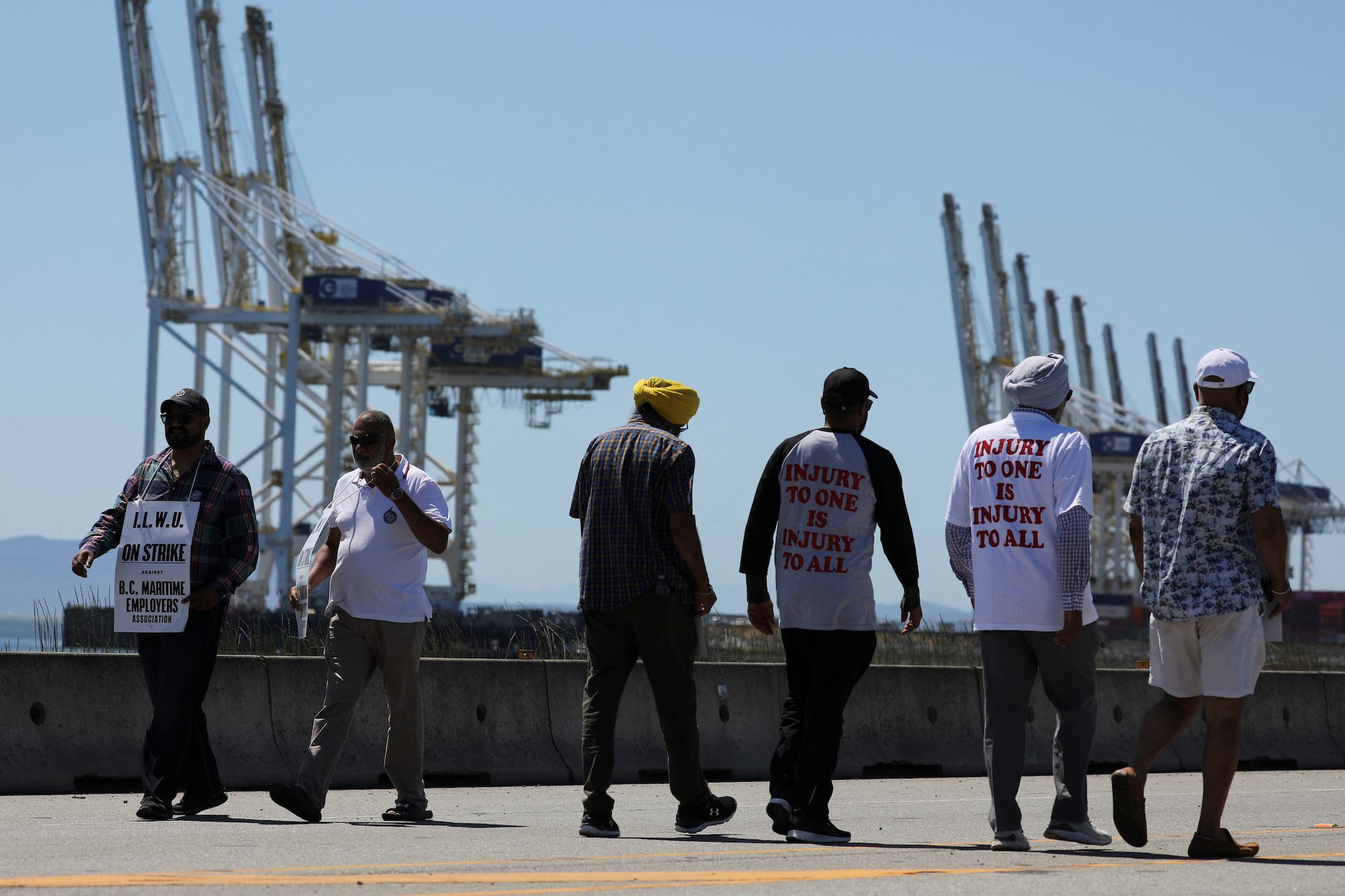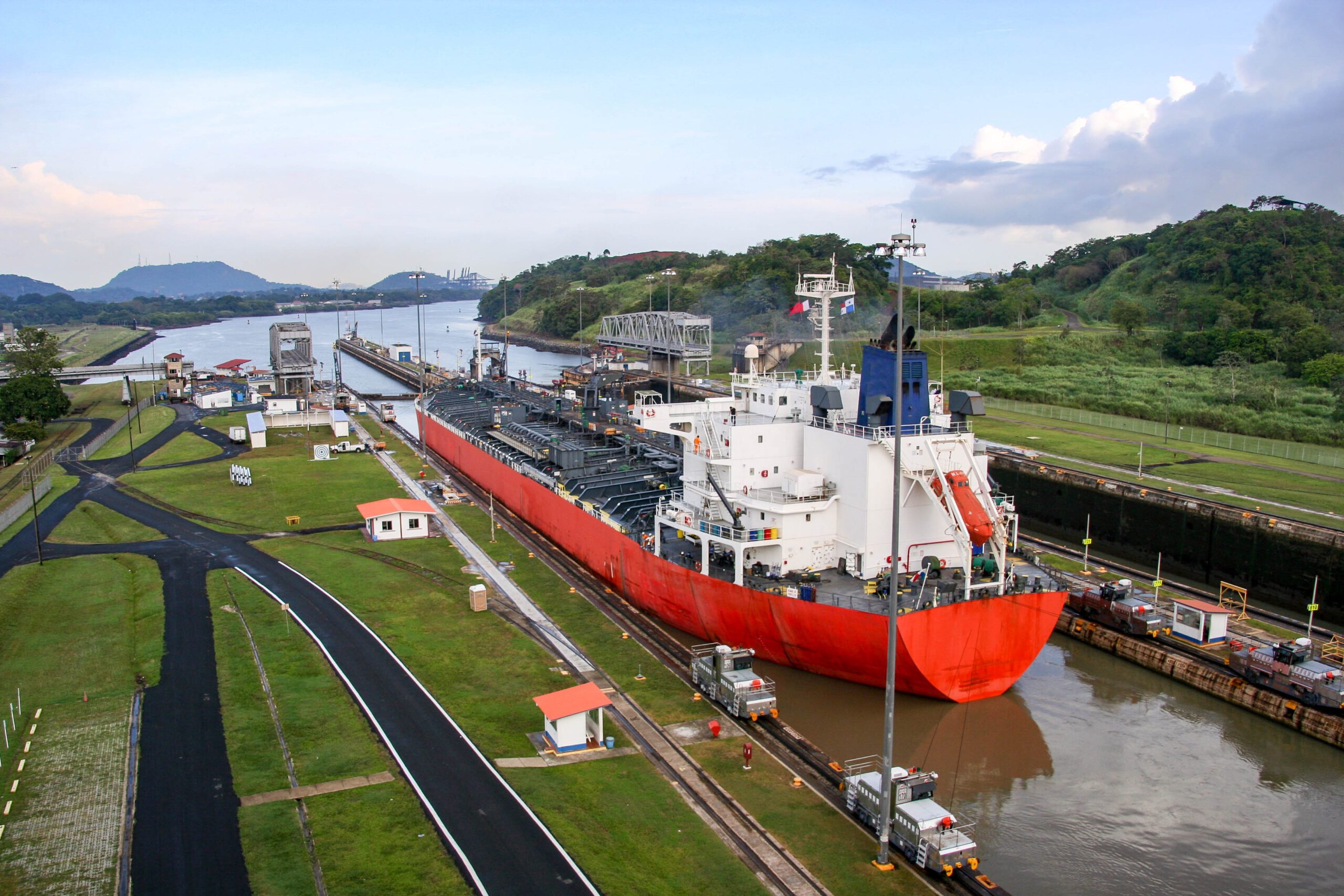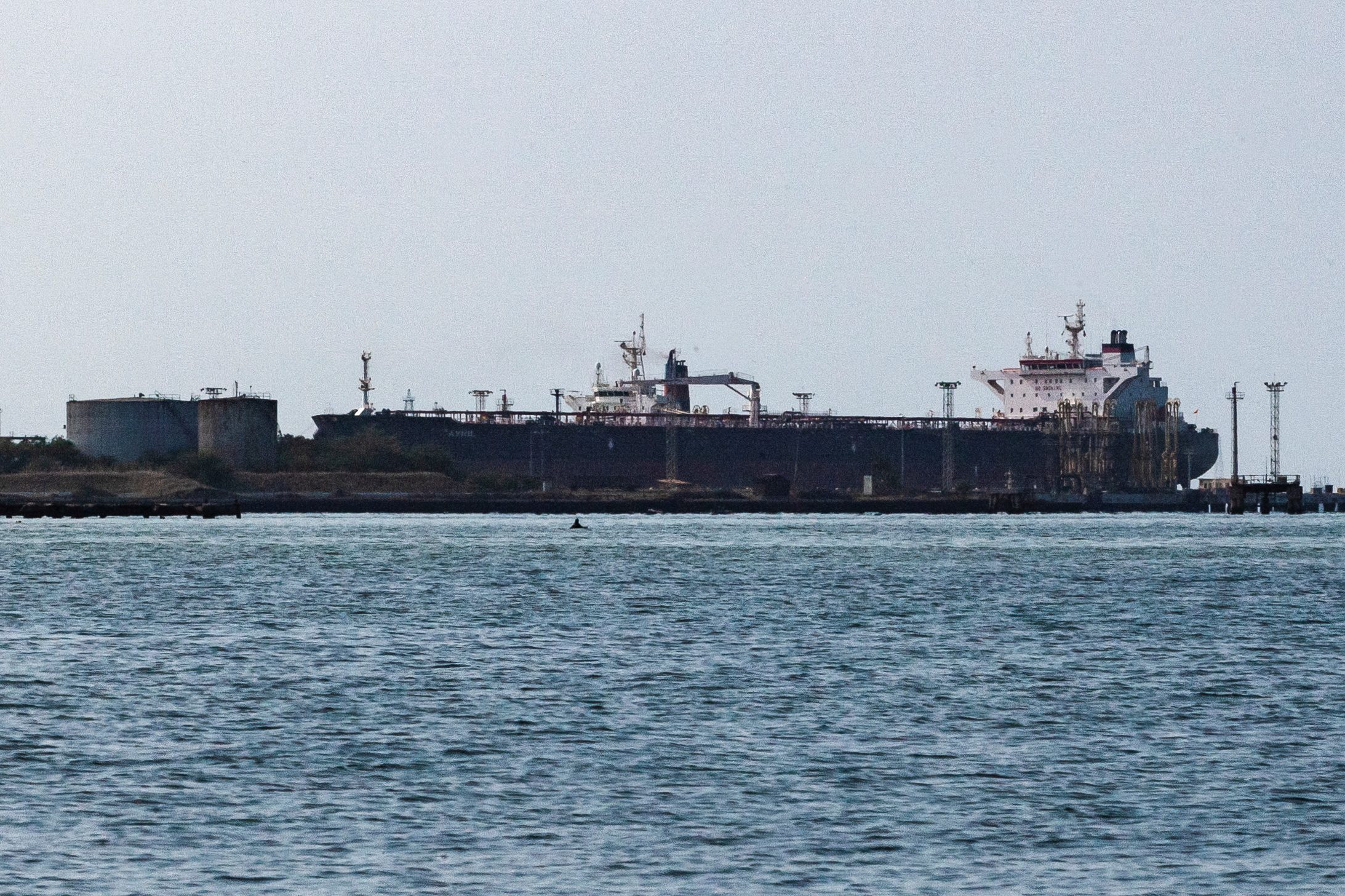Dockworkers on the U.S. West Coast will refuse to unload cargo destined for Canada in a display of solidarity with striking port workers in British Columbia.
The move was announced by ILWU International president Willie Adams on Monday, stating “The ILWU will not be unloading Canadian bound cargo in solidarity with our Brothers and Sisters in ILWU Canada.”
ILWU Canada and the British Columbia Maritime Employers Association (BCMEA) have been unable to reach a new collective bargaining agreement covering some 7,400 longshore workers and foremen at Canada’s West Coast ports since the previous agreements expired on March 31, 2023. The BCMEA represents 49 private sector waterfront employers and operators in British Columbia.
The labor strike was initiated by members of ILWU Canada on July 1st and has caused significant disruptions to the transportation of goods and commodities through Vancouver, the busiest port in Canada, and Prince Rupert.
The BCMEA estimates that the strike has already disrupted cargo worth approximately C$7.5 billion ($5.7 billion). The association says that the refusal U.S. West Coast port workers to work ships rerouted from Canada will “further damaging the reliability and competitiveness of West Coast ports up and down the coast.”
In an effort to resolve the ongoing dispute, the two sides engaged in discussions with federal mediators over the weekend. As part of the negotiation process, the BCMEA presented a revised proposal with an updated offer that included enhanced benefits for casual tradespeople, an increase in apprenticeships, and the provision of a tool allowance, according to the employers’ group.
The situation continues to unfold as both parties strive to find common ground. However, the refusal of US dockworkers to handle Canadian-bound cargo wills serve to further intensify the impact of the ongoing labor strike.

 Join The Club
Join The Club











